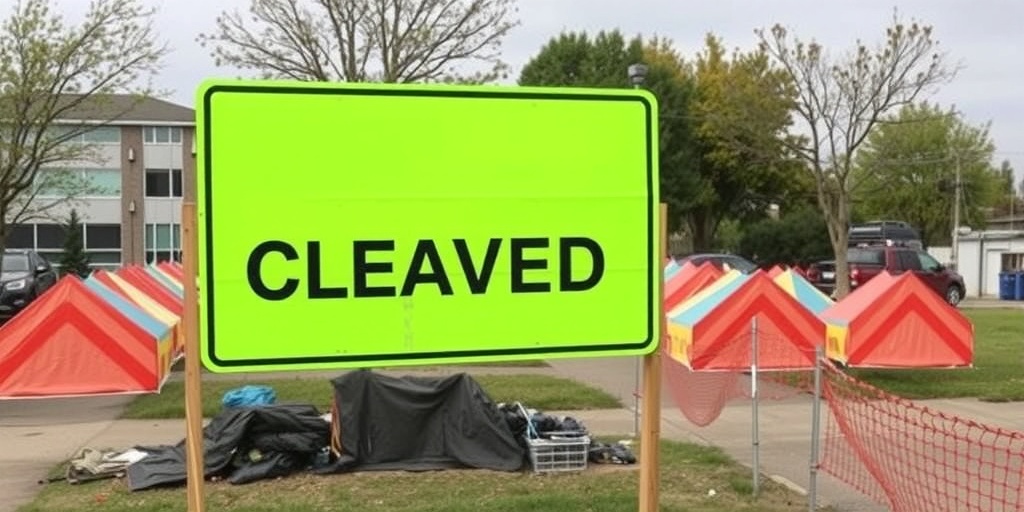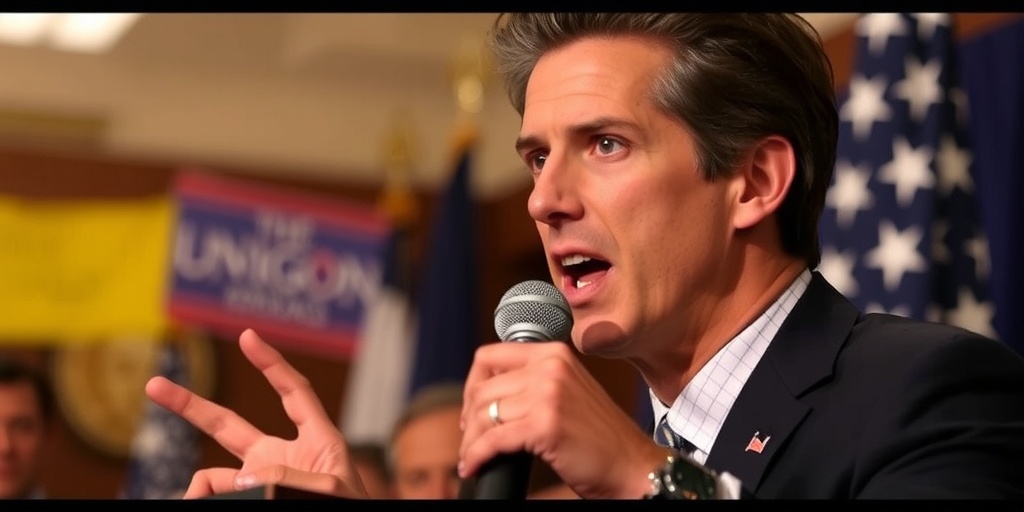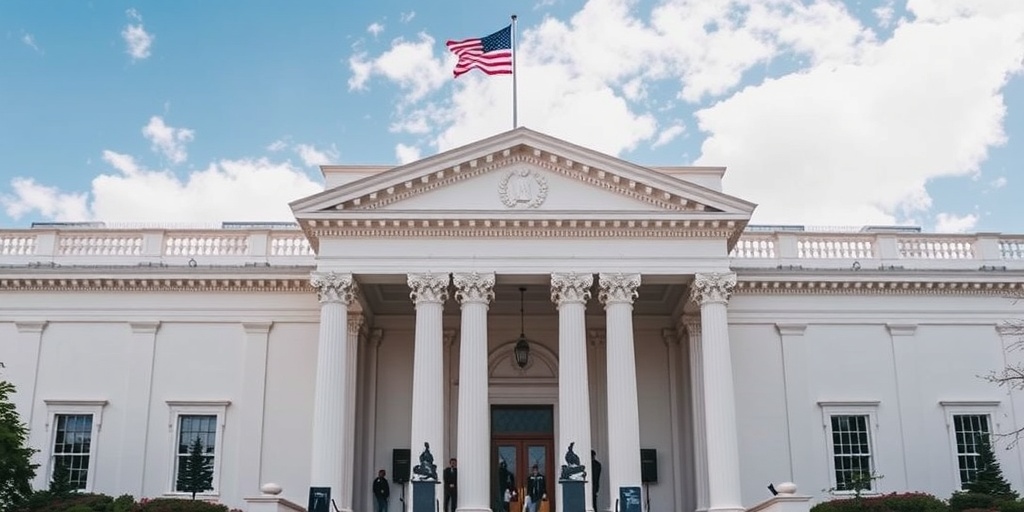Now Reading: Homeless Camps Cleared, Resulting in Fatal Incidents
-
01
Homeless Camps Cleared, Resulting in Fatal Incidents
Homeless Camps Cleared, Resulting in Fatal Incidents

Title: Death of Homeless Man Highlights Harsh Realities of Urban Encampments
In recent weeks, the death of Cornelius Taylor, a homeless man from Atlanta, has thrown a spotlight on the contentious issue of encampment clearances amid rising homelessness. Taylor, 46, had promised his cousin Darlene Chaney that he would visit for Christmas—a promise he ultimately could not keep. Shortly after reaching out to Chaney with plans to go see a movie, he became another statistic in the growing crisis of homelessness when a clearance crew inadvertently crushed his tent while he was inside.
As homelessness continues to hit record levels across the United States, bipartisan political leaders—including President Trump and California Governor Gavin Newsom—are focusing on dismantling encampments. They argue that these encampments contribute to crime, hinder traffic, and litter city landscapes with needles and waste. Additionally, a Supreme Court ruling from the previous year has given authorities legal ground to ban public sleeping, further empowering clearance efforts.
Atlanta’s Mayor Andre Dickens has been a vocal advocate for removing encampments located under bridges, especially in light of a fire that shut down a major highway. Dickens contends that the individuals residing within these encampments pose threats to public safety and overall well-being. “It impacts schools, it impacts commerce, and it impacts people’s lives,” he stated regarding the necessary actions being taken.
However, the tragic death of Cornelius Taylor raises critical questions about the consequences of such sweeps. Critics argue that these forced removals only exacerbate homelessness, inflicting additional trauma on already vulnerable individuals. The disruptive nature of these clearances often results in the destruction of vital documents like ID cards and medication, making it increasingly difficult for affected individuals to regain stability.
Darlene Chaney, deeply affected by her cousin’s death, has called for an immediate halt to these clearances. “The breath went out of my body when I heard. I don’t want the next person to feel what I do,” she expressed, as she reflected on the loss of Taylor and her concern for others facing similar circumstances.
Taylor’s life—marked by struggles with mental illness and addiction—garnered unexpected attention at his funeral held at the historic Ebenezer Baptist Church, where Rev. Dr. Martin Luther King Jr. once preached. Attendees made comparisons between his experiences and those of Jesus, emphasizing the commonality of suffering among marginalized populations. Senator Raphael G. Warnock, who leads the service at Ebenezer, pointed out that the homeless are often crushed by larger societal forces, correlating Taylor’s tragic fate to historical grievances faced by the poor.
The circumstances surrounding Taylor’s homeless encampment reflect broader urban issues. The site was located in an increasingly gentrified area of Atlanta, just a block from significant landmarks like the Ebenezer church. As complaints about drug use and public safety mounted, efforts to remove encampments intensified. Outreach workers had begun their engagement months prior to the clearance, attempting to find shelter for residents. However, when the city scheduled the eviction, the warning fell short for many, and tragically, Taylor remained until it was too late.
Cornelius Taylor was known to his family as a sensitive and kind individual but had struggled since childhood. Raised in a nurturing environment, he faced trauma when returned to his biological mother, and after his foster mother’s death, his life spiraled into cycles of homelessness and incarceration, punctuated by bouts with addiction.
Reports indicate that some residents were able to relocate successfully, but many were not as fortunate. When heavy machinery arrived on January 16, city officials claimed they had conducted checks on the remaining tents but tragically overlooked Taylor, who lay hidden. Witnesses reported he may have been using drugs, which complicated his ability to hear the warnings as the machinery moved in.
Following his death, unrest in the encampment increased, with reports of vandalism, including someone slashing remaining tents. One man, identified as a local community member, faced arrest for threatening to take matters into his own hands if officials did not clear the camp.
Legal experts express concern over the city’s approach, warning that the drive to clear encampments may prioritize property values over human lives. Critics of the clearance efforts cite data indicating that such involuntary displacements lead to increased risks for health issues, addiction, and even mortality among the homeless population.
As Atlanta continues to grapple with homelessness, advocates argue for more humane solutions that emphasize outreach, mental health support, and the provision of affordable housing. The heart-wrenching narrative of Cornelius Taylor serves as a somber reminder of the vulnerabilities faced by those living on the margins. Darlene Chaney poignantly encapsulated the urgency for change, hoping that her cousin’s story would foster a deeper empathy and understanding within society. “I couldn’t save you, but I pray that all those who failed you can save the next,” she said at his funeral, catalyzing a collective call for compassion and reform.
Stay Informed With the Latest & Most Important News
Previous Post
Next Post
-
 01New technology breakthrough has everyone talking right now
01New technology breakthrough has everyone talking right now -
 02Unbelievable life hack everyone needs to try today
02Unbelievable life hack everyone needs to try today -
 03Fascinating discovery found buried deep beneath the ocean
03Fascinating discovery found buried deep beneath the ocean -
 04Man invents genius device that solves everyday problems
04Man invents genius device that solves everyday problems -
 05Shocking discovery that changes what we know forever
05Shocking discovery that changes what we know forever -
 06Internet goes wild over celebrity’s unexpected fashion choice
06Internet goes wild over celebrity’s unexpected fashion choice -
 07Rare animal sighting stuns scientists and wildlife lovers
07Rare animal sighting stuns scientists and wildlife lovers




















